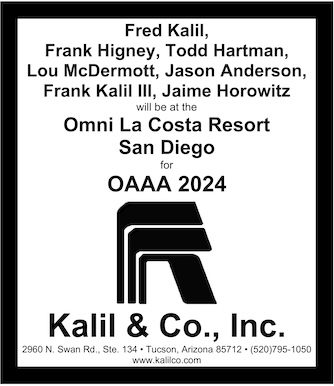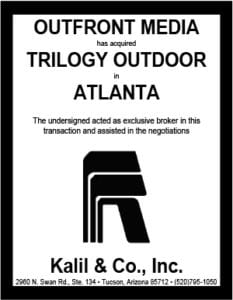
Chris Cowlbeck and his staff at IBOUSA have done it again! For the second time in this fateful year of 2020, they’ve managed to plan a fun and informative LIVE and IN PERSON Fall Conference on October 7 through 9. And, rather than in Louisville or Minneapolis, this conference is scheduled in Chris’ backyard in Oklahoma City. Unfortunately, I once again will not be able to attend in person. Instead, like for the Spring Conference, I’ll be presenting by video a power point, this time on “Content-Based Sign Regulation Challenges.” My power point is attached, but I hope you can help support IBOUSA and attend this conference in person.
Whether the message is “Black Lives Matter” or “Make America Great Again,” 2020 has certainly been the year when Americans have exercised their First Amendment rights. It has also been a year when courts across the country have protected Free Speech Rights, including by scrutinizing content-based messages, especially those displayed on signage. The modern trend started in 2015, when the Supreme Court in Reed vs Town of Gilbert ruled that a municipal ordinance on religious and temporary signs was content-based and unconstitutional. And, even though Justice Alito cautioned in his concurring opinion that Reed does not mean that “municipalities are powerless to enact and enforce reasonable sign regulations,” including “rules distinguishing between on-premise and off-premise signs,” lower courts have relied on the case to invalidate state and municipal regulations that make such distinctions.

For example, the on-premise/off-premise sign distinctions contained in the Highway Beautification Acts in Texas, Tennessee, and Kentucky rendered those Acts content-based and violative of the First Amendment. The appellate courts in each of these cases, Auspro vs TxDOT, Thomas vs Bright, and L.D. Management vs Kentucky, cited Reed as the precedent for striking down the HBAs. In Texas and Tennessee, the Legislatures then amended their Acts to cure the constitutional defects by redefining an “off-premise sign” as one for which a fee is paid in exchange for the display of the message.
Most recently, on August 25, 2020, the Fifth Circuit Court of Appeals followed this established trend in Reagan and Lamar vs City of Austin, and held the on-premise/off-premise distinctions for digital signs in the Austin Sign Code to be content-based and unconstitutional. Once again, in the Texas, Tennessee, and Kentucky cases, the sign users successfully defended prosecutions of the HBAs by exploiting the content-based distinctions between on-premise and off-premise signs. In what may be the beginning of yet another new trend, however, Reagan and Lamar used the constitutionally defective distinction offensively, by applying for several digital permits with Austin, and then suing to secure them when denied under the invalid ordinance. Likewise, Thomas, the successful defendant in the Thomas vs Bright case, was recently awarded his attorneys fees and expenses of over $690,000. Therefore, look for similar types of offensive challenges to content-based sign regulations, such as sign users seeking refunds of permits fees collected under sign regulations held to be unconstitutional, or even lost advertising revenue damages for permits wrongfully denied under such regulations.
[wpforms id=”9787″]
Paid Advertisement

















